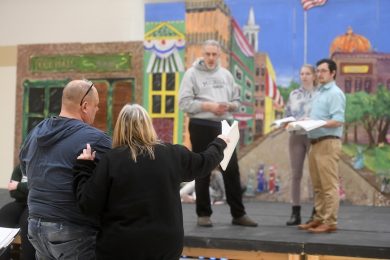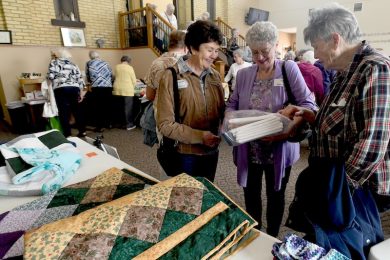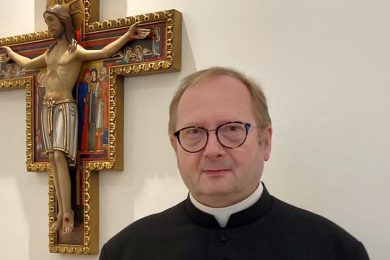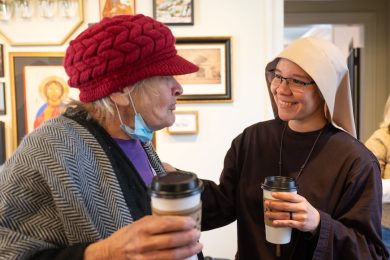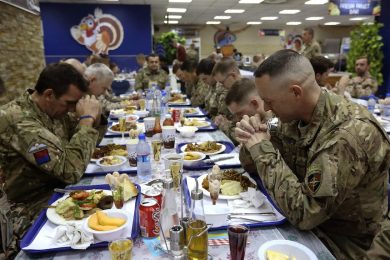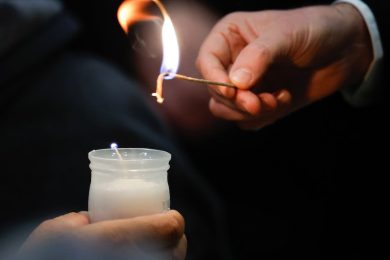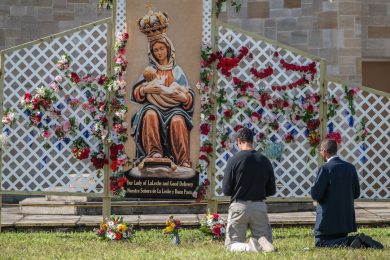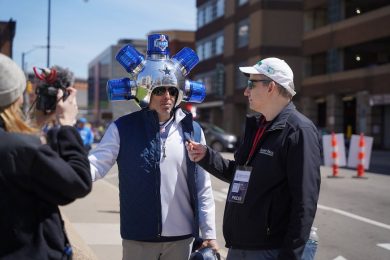DAVENPORT, Iowa (CNS) — Iowa’s Catholic bishops are taking a prominent stand on three pressing federal issues, one involving the imminent execution of four federal death-row inmates, another on the Deferred Action for Childhood Arrivals program, or DACA, and the third on the asylum system.
In a July 1 letter to President Donald Trump, the bishops of Iowa’s four dioceses requested clemency for Dustin Lee Honken and three other men facing capital punishment in the coming weeks. Honken, of Iowa, was convicted in 2004 “of the horrific acts of killing five people, including two children” and is scheduled to be executed July 17.
The bishops ask Trump to “commute Mr. Honken’s sentence, as well as the sentences of others to be executed this summer from death to life without the possibility of parole. It is a duty of the state to punish offenders and defend the common good and this would still be accomplished by commuting his sentence.”
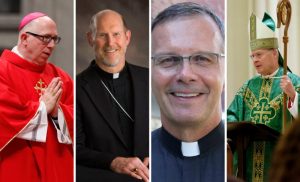
Honken’s conviction stemmed from his efforts to eliminate witnesses in his federal drug case, according to court records. Two of the five victims were men who planned to testify against Honken. The other three victims were a single, working mother and her 10-year-old and 6-year-old daughters.
A jury in the U.S. District Court for the Northern District of Iowa found Honken guilty of numerous offenses, including five counts of murder during the course of a continuing criminal enterprise, according to a June 15 U.S. Department of Justice news release.
The other men facing execution are:
- Daniel Lewis Lee, a member of a white supremacist group convicted of murder in 1999 by an Arkansas district court jury.
- Wesley Ira Purkey, who was convicted of murder in 2003 by a Missouri district court jury.
- Keith Dwayne Nelson, who pleaded guilty in 2001 in a Missouri district court to charges related to the murder of a child.
Iowa’s bishops affirm “a special need to offer sympathy and support for the victims of violent crime and their families.”
“We sincerely hope and pray for their consolation and healing. We also pray for the condemned and his family and friends,” the bishops said. “They are surely harmed by the choices he has made and they too suffer and will likely grieve his death. Even those who have committed great harm retain their human dignity and the capacity to reform, to love, and to be loved.”
“It is our concern that the death penalty contributes to a growing disrespect for the sacredness of all human life,” they continued. “We believe that state-sanctioned killing would not deter or end violence, but instead perpetuate a cycle of violence. We oppose the death penalty to follow the example of Jesus, who both taught and practiced the forgiveness of injustice.”
The letter is signed by Archbishop Michael O. Jackels of Dubuque and Bishops Thomas R. Zinkula of Davenport, R. Walker Nickless of Sioux City and William M. Joensen of Des Moines.
“The Catholic Church teaches that capital punishment is “inadmissible” in all cases because it is an ‘attack on the inviolability and dignity of the person’ (CCC 2267),” Bishop Zinkula told The Catholic Messenger, newspaper of the Diocese of Davenport.
“In his address to Congress during his apostolic visit to the U.S., Pope Francis called for ‘the global abolition of the death penalty,'” the bishop said. “As our country struggles with systemic racism, it is important to note that it also exists in our criminal legal system — in the unfair and biased application of the death penalty.
“We cannot build a culture of life when the federal government puts people to death. We should be focused on protecting and preserving life, not carrying out executions.”
In a statement released July 6, Iowa’s bishops expressed concern on many issues, but focused on two specifically, DACA and the U.S. asylum system.
Regarding DACA, they said, “Since 2012, hundreds of thousands of young people have come forward, passed background checks, paid a fee, and received permission to live and work in America.” These young people arrived in the U.S. as children, with their parents, and know America as their only home, the bishops said.
“I know a number of Dreamers in our diocese,” Bishop Zinkula said. “They are fine young people who are woven into the fabric of our country and of our church. Dreamers are mothers and fathers, doctors and nurses, veterans of our military, hard-working college students, and parish leaders.
“I can’t imagine being brought to the U.S. by one’s parents, being totally assimilated here, having no or minimal association with one’s ‘home’ country, living with the uncertainty and fear of one’s life being completely uprooted by deportation.”
He said the U.S. bishops have long supported Dreamers and their families. DACA recipients are called “Dreamers” after the proposed Development, Relief and Education for Alien Minors Act, or DREAM Act, which would grant temporary conditional residency to these young people. It was first introduced in Congress in 2001 and has yet to pass.
The Iowa bishops called on the House and Senate and Trump to continue the DACA program and encourage Catholics to send comments to senators at https://justiceforimmigrants.org/category/action-alerts.
The Iowa bishops also opposed the administration’s “effort to essentially abolish the current asylum system.” Under that system, individuals who successfully apply for asylum meet the definition of persons fleeing persecution in U.S. law. Such status allows them to remain in the country and receive services, if they are eligible.
A new, proposed law would violate domestic and international law, the bishops said. It also would “violate asylum-seekers’ due process rights, foreclose asylum for those fleeing gender- and gang-based violence, and give asylum adjudicators unfettered discretion to deny asylum applications,” the bishops said. They encourage the Department of Justice and the Department of Homeland Security to withdraw the proposed rules in their entirety.
“Asylum is a lifeline for tens of thousands of vulnerable individuals,” the bishops said. “These rules, which would make accessing asylum extremely difficult if not nearly impossible for the vast majority of asylum-seekers, are morally wrong. If enacted, the United States will no longer be a leader in protecting the most vulnerable.”

